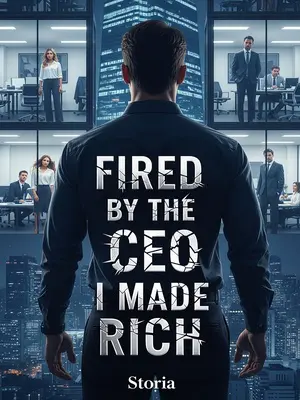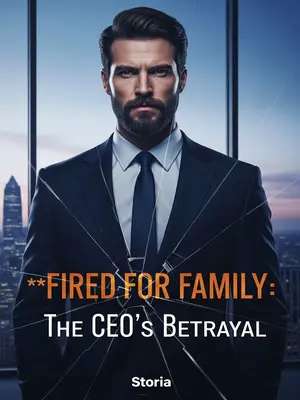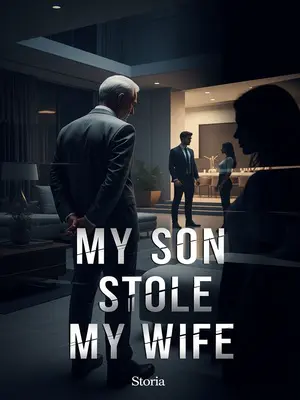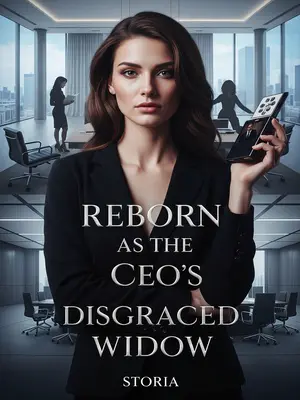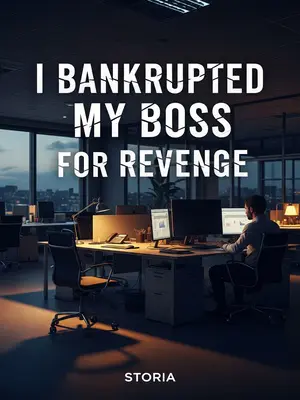Chapter 1: The Day Everything Changed
My assistant droned on about quarterly numbers, but all I could focus on was the growing pressure in my bladder. The urge hit hard and sudden, like a prank from a cruel god. Without thinking, I unzipped my pants and peed into the trash can beneath my desk.
The fluorescent lights overhead buzzed, slicing through the heavy silence. Natalie, my assistant, went rigid, her face burning scarlet with shock. She rushed to the door, slammed it shut, then yanked the blinds down with a rattling clatter. For a moment, she hesitated—wringing her hands, glancing back at me, then at the door—before finally locking it with a soft click. I saw her swallow hard, then heard her whisper, "It’s okay. I’ll handle this."
I sat motionless, my mind drifting to the report she’d just delivered, but the numbers were lost to me. On the cabinet beside me, a half-eaten box of Krispy Kreme donuts sat abandoned, glaze turning tacky under the fluorescent glare. The acrid chemical smell crept up from the trash can, stinging my nose. I stared at the spreadsheet on my monitor, but the numbers blurred and danced. My hands, folded on my lap, trembled just a little. For years, I ran this company like a machine. Now, I couldn’t even control my own body.
Wait—something isn’t right.
A cold ripple crawled up my spine. I blinked, reality breaking through the haze, and the distant hallway voices faded behind a roaring in my ears.
Natalie knelt beside my chair, hugging me tight, her voice shaking: "It’s okay. You’re just having a rough day. We’ll get through this, I promise." Her perfume—lemon and vanilla—wrapped around me, grounding me. The blinds shivered as the HVAC kicked on, blowing icy air across the room.
I stared blankly at the framed photo on my desk—a picture of my wife, my son, and me. My wife’s eyes sparkled, her arm around our boy’s shoulders. That photo, snapped in a greasy spoon off I-40 outside Flagstaff, used to be my anchor. Now, it felt like a stranger’s memory.
I couldn’t stop the tears. Hot shame and fear tangled in every drop as they slid down my cheeks. The sob caught in my throat, thick and wordless. The desk under my hands felt foreign—like I’d stumbled into another man’s life and couldn’t find the way out.
The day had finally come. I could already feel the eyes on my wife and child—rivals, greedy relatives, even the PTA gossip hounds—waiting to pounce on our weakness. I’d worked so hard to keep them safe from the world I’d built, but nothing felt safe anymore.
What kind of heights must a man reach, for people to fight over his legacy once he’s gone?
All those years—late nights, strategy sessions, little league games missed—did any of it matter if my legacy became a battlefield for others? Was this really the American dream, or just the price of ambition?
But now, I couldn’t even remember how high I’d once climbed.
My trophies and awards—crowding the bookshelf behind me—were just dust-covered relics. Sometimes I’d trace my fingers over the plaques, hoping to spark a memory. All I found was a hollow ache.
The first time I realized something was wrong, I was working late. I meant to call my wife to tell her not to wait up. The office was empty, janitor humming down the hall. My phone buzzed, but the numbers on the screen meant nothing. I stared at the keypad, mind as blank as my first day on the job.
I’d never saved my family’s numbers, afraid someone might steal my phone and scam them. But now, I realized I couldn’t remember her number at all.
For a man who prided himself on caution, that moment hit like a truck. Numbers that used to be muscle memory just vanished. The silence after was suffocating.
That was the moment I knew something was truly wrong.
It was a quiet dread you don’t mention at dinner. Not a flu or a hangover—a slow, grinding realization that something precious is slipping away.
My photographic memory was always my strength. No matter how exhausted, I never forgot my wife’s number.
My college buddies called me "The Vault." I could recite names, birthdays, even the VIN on my first Chevy. My family’s numbers were burned into me—or they used to be.
Natalie helped me make a doctor’s appointment. The diagnosis: Alzheimer’s—early-onset dementia. She drove me to the neurologist’s office just off the interstate, waiting in the parking lot with two cups of gas station coffee while I got the news. The doctor’s words echoed, cold and clinical. Early-onset. No cure. My mouth went dry. I stared at the diplomas on his wall, searching for a mistake, a loophole—anything but this.
I left the office with a stack of pamphlets and a future I didn’t recognize.
I was only thirty-five. I used to brag about burning out young, always first in and last out. Turns out, I was fading, not burning.
The doctor told me the youngest patient in the country was just nineteen. He showed me news clippings, studies—a cold comfort. This disease didn’t care about age, sharpness, or drive.
Aging. The thing we fear most had come for me early.
In America, we idolize youth—old age is something we try to Botox, dye, and jog away from. I never thought I’d meet it in my mid-thirties.
That day, sitting in the car, I asked Natalie, “How have I treated you?”
Rain tapped the windshield, city lights blurring into watercolor streaks. Natalie gripped the steering wheel, eyes locked forward. The air was thick with things unsaid.
She answered softly, “You’ve always been good to me. Better than anyone.”
Her voice was small but steady. I remembered hiring her—fresh out of community college, nerves and ambition in equal measure. She’d never let me down.
I asked, “If people at the company find out about my condition, what do you think will happen?”
I saw the worry crease her brow in the rearview mirror—a line that hadn’t been there a year ago.
Natalie said gently, “No one will know. You once told me—never trust your fate to the kindness of others.”
The car was silent except for the heater’s whirr. She glanced over, a look that promised she’d take my secret to the grave. My own words, thrown back to me as a lifeline.
I was quiet a long time. Finally, I said, “Find time to fly to Switzerland.”
The words tasted like metal. There was a chill in the way I said them, as if I was placing an order, not spelling out the end of my own story.
She asked, “You want me to help you arrange assisted suicide, right?”
Her hands fumbled with the radio knob, twisting it off. Her question hung in the air, heavy and real.
I nodded.
If aging means lying in bed, having my family clean up after me, drooling away my days—I’d rather die with dignity.
In this country, independence is holy. Burdening my family, becoming a shell, was worse than death. If I had to go out, I wanted it on my own terms.
Natalie kept my illness a secret and began to decline with me.
She took on more than her job ever required—covering my mistakes, steering me through meetings, whispering reminders. It was more than loyalty; it was shared mourning.
From that day, Natalie became my protégé, and together we betrayed the team.
There was no ceremony—just a silent pact. In the war room of corporate America, we were suddenly on the same side.
I’d wanted to build something that would outlast me, like Ford or Carnegie. I went to campaign fundraisers, shook hands with mayors at pancake breakfasts, posed for photos with city officials. I thought legacy was built brick by brick.
I wanted to make the company a hundred-year legacy for my team and my son. He could have had his pick—Stanford, MIT, Harvard. The business would be his, a gift and a burden. Now the path I’d cleared was crumbling behind me.
After my diagnosis, I led the company through rounds of financing, diluting my shares—just trying to cash out and escape.
Instead of building, I started selling. Endless Zoom calls, negotiating with New York hedge funds, my mind drifting. With every round, my stake shrank. I was buying time, not growth.
Several vice presidents fought me in the conference room. They led strong teams, but I betrayed them again and again. The glass-walled room was a boxing ring. I dodged questions, hid the truth. Their loyalty curdled into resentment. I couldn’t blame them.
I saw the pain and disappointment on their faces; I knew how deeply I’d let them down. Every slammed fist, every cold shoulder in the elevator—I deserved it. I used to be the guy they’d follow anywhere. Now I was just another exec cashing out.
But I also understood: if my illness was exposed, everyone would show their true, wolfish ambitions. In the world of leveraged buyouts and quarterly targets, mercy was a foreign language. If they sniffed weakness, they’d come for my family, my life’s work.
Corporate America is a jungle—dog-eat-dog, and the weak don’t last.
I wouldn’t let anyone devour my wife and child. Their safety meant more than the company, the money, or my reputation. I’d do whatever it took—burn every bridge if I had to.
The day I was diagnosed, I started keeping a journal. I bought a leather-bound notebook from CVS, blue ink bleeding across the pages. Every night, I scribbled down memories, names, numbers, hopes—afraid of losing even the smallest detail.
The first line I wrote: “Before I become useless, I must protect everything I cherish.”
Those words stared up at me every morning, a promise inked in panic and love. Sometimes I’d reread it five times before breakfast, praying the meaning would stick.
My memory got worse and worse. Every day I wrote in my journal, and Natalie would help pick out the work highlights and read them back to me. The entries became fragments—half-remembered meetings, random childhood flashes, lists of passwords and safe deposit boxes. Natalie’s voice, gentle and precise, became my memory’s stand-in.
Yet my illness had gotten so bad that I peed in front of my female subordinate.
Just like those nursing home scandals you see on the news—people hate seeing the mighty brought low.
No one talks about how illness strips away dignity, leaving only shame and confusion. I saw myself through their eyes—a powerful man, brought low by something he couldn’t fight.
But that’s not it.
There’s no malice in the decline, just broken wiring. It’s easy to hate what you don’t understand. Easier to judge than to grieve.
Alzheimer’s makes people lose all sense of shame, forget morals and decency.
It’s not a choice. The rules of the world blur, the guardrails vanish. You just… slip.
Just like I had done.
In that moment, I was no longer the CEO, the breadwinner, the husband. I was just a man lost inside his own failing mind.

